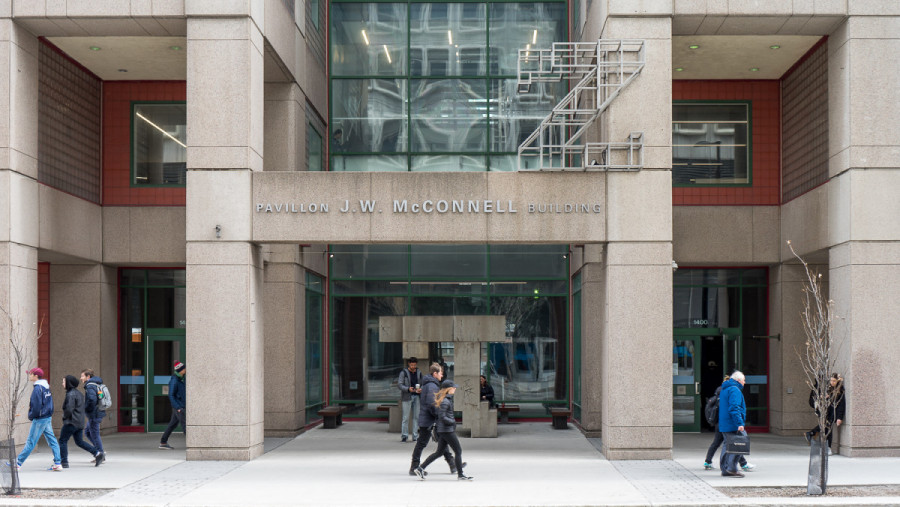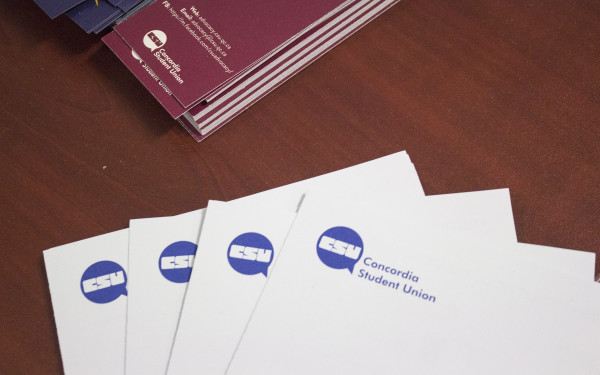Concordia Announces Full Fossil Fuel Divestment
The University Finally Cedes to Student Pressure on Divestment From Oil, Coal, and Gas Sector
The Concordia University Foundation has just announced that it will be completely divesting from oil, coal, and gas by 2025.
In five years the university will be making 100 per cent sustainable investments.
The foundation, Concordia’s primary investment arm, has been working on decreasing investments for six years. Since 2014, the foundation’s investment into fossil fuels decreased to $14 million, or 5.7 per cent of its $243 million total assets.
This change has been in the works since 2014 and aligns with a contract signed by Concordia in September. The contract, signed by nine other Quebec universities, states it will commit to more education on sustainability, research, and carbon neutrality.
The divestment comes in the wake of years of pressure on the administration. Divest Concordia has been campaigning for this change in policy since 2013.
Since its creation, it has been pressuring Concordia into removing its investments in fossil fuel companies and reinvesting them responsibly.
“I’m feeling great,” said Emily Carson-Apstein, external coordinator of Sustainable Concordia. “Obviously this is something we’ve been working towards for years. Part of me is always wary about this sort of thing. We have to see how it goes. We have to see what they do with it.”
“I’m really glad they’ve acknowledged the students’ involvement because it really has been a student-driven push for a long time. I’m glad it’s being seen as a cooperation. That they are acknowledging our input and our place in this.”
Because the announcement was made by Graham Carr, Concordia’s interim president, and expanded on by members of the foundation’s board of governors, it gave the impression that the innovation was headed primarily by them. To compensate for that, they made sure to mention the work put in by students and faculty over the years, including students that have graduated already.
“We’re going to make sure that things stay on track and that information is transmitted as publicly as possible. So there’s still going to be student presence in this fight, and we’re also committed to working in solidarity with other divestment groups in Canada,” Carson-Apstein said.
“We’re happy to see after several years of public pressure and student advocacy that Concordia has finally decided to divest from fossil fuels. Not just divest but reinvest that into sustainable funds,” said Alex Leonard, speaking on behalf of Divest Concordia. Leonard is a former member of Divest Concordia and a master’s student in environment and sustainability.
Leonard thinks that a window of five years for Concordia to divest is too long. “It’s a stretch in itself, so if they can’t get it done in five years, they are really failing not just the student body and the public, but itself for setting such lofty goals and not acting on them.
“I’m really glad they’ve acknowledged the students’ involvement because it really has been a student-driven push for a long time.” —Emily Carson-Apstein
“It would be best if they divested tomorrow to see that initial rupture. I think five years in terms of the planning and the management that’s required is a goal that one would expect from the university administration.”
The announcement was made at the Senate’s third meeting of the year and was introduced by Carr.
Howard Davidson, chair of the Concordia University Foundation, said the change in the university’s investment strategy is a way “to give back to Concordia.”
“We’re doing our little bit for the world,” he said.
The announcement has been years in the making. Davidson explained he had met with student leaders six years ago, when the plans were originally put into motion.
The reallocation of money would also support research and scholarships, according to Denis Cossette, secretary-treasurer of the foundation.
Cossette expanded on the monetary side of things. He mentioned the foundation’s $1.2 million investment in the global investment firm Inerjys Ventures. The Concordia-Inerjys deal, made in April, aims to strengthen the clean technology sector.
Now that the Concordia University Foundation has divested from fossil fuels, Divest Concordia has a more important role than ever, according to Leonard.
Since Concordia has “put their money where their mouth is,” it’s more important than ever for student associations like Divest Concordia and Sustainable Concordia to ensure the foundation follows its outlined vision, he said.
“It’s one thing to just divest,” and it’s another thing to make sure new buildings are LEED-certified, the current infrastructure is transitioning into green infrastructure, and using more green energy as an institution. There’s more to sustainability than just investing money, said Leonard.




_(1024x719)_600_375_90_s_c1.jpg)
_900_642_90_600_375_90_s_c1.jpg)

